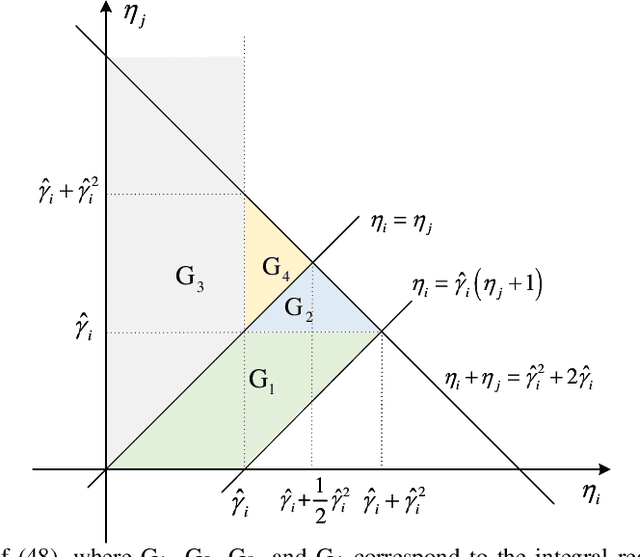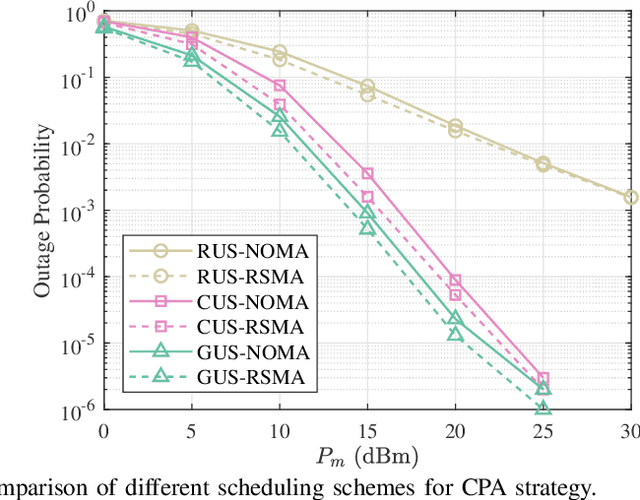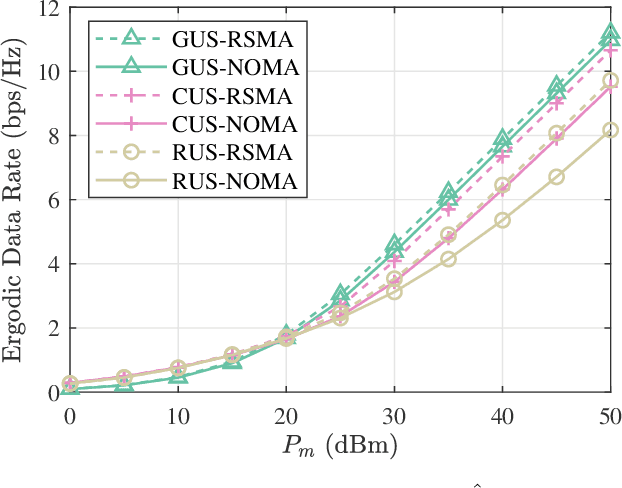Outage Performance of Uplink Rate Splitting Multiple Access with Randomly Deployed Users
Paper and Code
May 03, 2022



Rate splitting multiple access (RSMA) is a promising solution to improve spectral efficiency and provide better fairness for the upcoming sixth-generation (6G) networks. In this paper, the outage performance of uplink RSMA transmission with randomly deployed users is investigated, taking both user scheduling schemes and power allocation strategies into consideration. Specifically, the greedy user scheduling (GUS) and cumulative distribution function (CDF) based user scheduling (CUS) schemes are considered, which could maximize the rate performance and guarantee access fairness, respectively. Meanwhile, we re-investigate cognitive power allocation (CPA) strategy, and propose a new rate-fairness oriented power allocation (FPA) strategy to enhance the scheduled users rate fairness. By employing order statistics and stochastic geometry, an analytical expression of the outage probability for each scheduling scheme combining power allocation is derived to characterize the performance. To get more insights, the achieved diversity order of each scheme is also derived. Theoretical results demonstrate that both GUS and CUS schemes applying CPA or FPA strategy can achieve full diversity orders, and the application of CPA strategy in RSMA can effectively eliminate the secondary user's diversity order constraint from the primary user. Simulation results corroborate the accuracy of the analytical expressions, and show that the proposed FPA strategy can achieve excellent rate fairness performance in high signal-to-noise ratio region.
 Add to Chrome
Add to Chrome Add to Firefox
Add to Firefox Add to Edge
Add to Edge